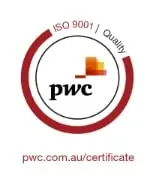How to Create a Successful Internal Audit Schedule: 5 Useful Tips
Published on: November 23, 2023
Navigating the realm of internal audits necessitates more than ticking off checkboxes—it requires a blend of strategic planning and insightful execution. Crafted with practicality in mind, this blog discusses five highly practical tips to create a successful internal audit schedule. By integrating these approaches, you can align your audit activities with your overarching business goals, ensuring not only conformance to the ISO Management System Standards, but also a continual cycle of improvement and growth.
Before we jump into the tips though, let’s ensure we are on the same page about what an internal audit schedule is.
What is an Internal Audit schedule or plan?
Internal Audits serve as a crucial tool for maintaining conformance with ISO Management System Standard(s), identifying areas for improvement, and ensuring efficient operations. Internal Audits can be strategically scheduled throughout the year, tailored to specific business areas or departments, various locations, and varying durations, with distinct teams overseeing each.
An internal audit schedule or plan has a predefined timeline that indicates not only when internal audits will be carried out, but also by whom, along with other relevant information such as the scope of the audits, the criteria to be evaluated, and the frequency of the audits. A well-structured internal audit plan is essential for organisations to assess their processes and controls to mitigate risks and enhance overall performance.
5 tips for a successful Internal Audit schedule
1. Comprehensive Knowledge of ISO Standards
Before designing an audit schedule, ensure a thorough understanding of the specific ISO Standard(s) applicable to your organisation. Whether it’s ISO 9001:2015 for Quality Management, ISO 14001:2015 for Environmental Management, or others, familiarity with the standards is essential. This knowledge provides the foundation for structuring audit objectives, criteria, and evaluation methods accurately.
If you aren’t familiar with the ISO Management System Standards you are required to audit, you may consider enrolling into an ISO training course. ICExperts Academy has 4 upcoming eLearning courses that cover the foundations of ISO 9001, ISO 14001, ISO 45001, and ISO 27001. These ISO Training courses would be a great starting point. To register your interest into one or more of these courses, click here.
2. Map Processes and Identify Critical Points
Begin by mapping out the processes within your organisation that fall under the scope of the ISO Standard(s). This initial assessment provides a clear overview of the landscape you’ll be auditing.
Identify critical points where deviations from the organisation’s own requirements and/or the standards requirements could have a significant impact. These points might include key processes, control measures, required records, and areas where non-conformances have been identified in the past. Design your audit schedule to concentrate on these critical points.
3. Take a Risk-Based Approach to Scheduling
Utilise a risk-based approach to determine the frequency and depth of internal audits. High-risk areas, where deviations from the organisation’s own requirements and/or the relevant ISO Standard(s) could have severe consequences, warrant more frequent and comprehensive audits.
On the other hand, lower-risk areas can undergo less intensive audits, streamlining resources and avoiding unnecessary disruptions to operations. This approach optimises resources by focusing efforts where they are most needed, while ensuring effective monitoring of related risks.
4. Integration with Management Review and Improvement Processes
Integrating your ISO internal audit schedule with other management system processes, including management reviews and corrective actions, brings about a harmonious alignment that elevates your organisation’s operational excellence. By strategically connecting these essential components, audit findings serve as valuable inputs for management reviews, enriching the decision-making process with real-time insights. This integration facilitates the identification of trends, patterns, and potential areas for enhancement, allowing for more informed strategic adjustments.
Furthermore, this interconnection establishes a feedback loop that fuels continual improvement efforts. The knowledge gained from internal audits can be seamlessly channelled into initiating targeted corrective and preventive actions. By using audit findings as a catalyst for improvement initiatives, the organisation can effectively address weaknesses, streamline processes, and bolster compliance.
In essence, this integration nurtures the PDCA cycle of plan, do, check, and act, which in turn facilitates a culture of continual improvement within the organisation.
5. Flexibility and Adaptability
Internal audit schedules should be flexible to accommodate unforeseen changes. Market conditions, organisational shifts, and regulatory updates can impact the schedule’s relevance. Regularly review and adjust the audit plan to address evolving risks and opportunities. Seek feedback from other auditors, process owners, and stakeholders to ensure that the schedule remains practical and effective.
Additionally, while regular audits are essential, there are times when it’s advised to refrain from conducting an audit. For instance, during significant operational changes, system implementations, or crises. Focusing on the audit process during these times might hinder the organisation’s ability to manage the situation effectively. Use discretion and flexibility in the audit schedule to avoid unnecessary disruptions.
How to become qualified to conduct Internal Audits
An Internal Auditor can be someone from within the organisation, although sometimes a business may choose to engage an external consultant to conduct their Internal Audits.
As defined in the ISO 19011:2018 standard, Internal Auditors must be trained and deemed competent to conduct internal audits. There also needs to be objectivity and impartiality throughout the audit process, which means that the auditors should not audit their own work or processes.
Our Management Systems Internal Auditor Training is an online course that covers all the principles of becoming an Internal Auditor, offering three levels of internationally recognised certificates, including the one for verifying competency, which is required when the business goes for Certification of their Management System.
Delivered in a series of short videos that can be watched at a time that best suits you, this practical online course will provide you with the knowledge and qualification you need to become an ISO Management Systems Internal Auditor for the main ISO Management System Standards: ISO 9001:2015, ISO 45001:2018, ISO 14001:2015 and ISO 27001:2022.
It’s important to note that once a business achieves Certification, it will have to continue performing internal audits in order to keep meeting the standards’ requirements, and in preparation for the yearly Surveillance Audits, and the Recertification Audit in three years. Therefore, businesses can benefit long term by qualifying their team to ensure their internal audits are being performed on an ongoing basis and in conformance with the requirements.
Check out our Management System Internal Auditor training page to download the course guide, or give us a call on 1300 614 897 to find out more about the training.
Brooke is the Marketing Coordinator and Content Developer at ISO Certification Experts and ICExperts Academy. She is responsible for all of the communications with our audience, including well-researched content across our website, blogs, social media channels, and email marketing. Her passion revolves around simplifying complex topics, helping prospective clients to make well-informed decisions with ease.
All information on this blog site is for informational purposes only. As this information is based on our professional experience, opinion, and knowledge, we make no representations as to the suitability of this information for your individual business circumstances. Especiality Pty Ltd trading as ICExperts Academy and all related businesses and brands will not be liable for any errors, omissions, legal disputes or any damage arising from its display or use. All information is provided as is, with no warranties and confers no rights.
We will not be responsible for any material that is found at the end of links that we may post on this blog site. The advice, ideas, and strategies should never be used without first assessing your own personal business situation or seeking professional and/or legal advice. Information may also change from time to time to suit industry and business needs, requirements and trends.


















